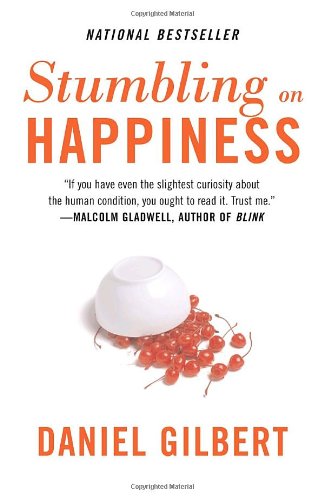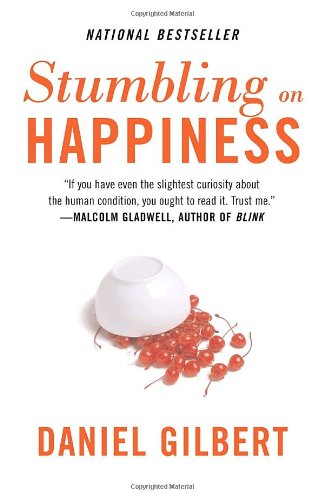
• Why are lovers quicker to forgive their partners for infidelity than for leaving dirty dishes in the sink?• Why will sighted people pay more to avoid going blind than blind people will pay to regain their sight? • Why do dining companions insist on ordering different meals instead of getting what they really want? • Why do pigeons seem to have such excellent aim; why can’t we remember one song while listening to another; and why does the line at the grocery store always slow down the moment we join it?In this brilliant, witty, and accessible book, renowned Harvard psychologist Daniel Gilbert describes the foibles of imagination and illusions of foresight that cause each of us to misconceive our tomorrows and misestimate our satisfactions. Vividly bringing to life the latest scientific research in psychology, cognitive neuroscience, philosophy, and behavioral economics, Gilbert reveals what scientists have discovered about the uniquely human ability to imagine the future, and about our capacity to predict how much we will like it when we get there. With penetrating insight and sparkling prose, Gilbert explains why we seem to know so little about the hearts and minds of the people we are about to become.Do you know what makes you happy? Daniel Gilbert would bet that you think you do, but you are most likely wrong. In his witty and engaging new book, Harvard professor Gilbert reveals his take on how our minds work, and how the limitations of our imaginations may be getting in the way of our ability to know what happiness is. Sound quirky and interesting? It is! But just to be sure, we asked bestselling author (and master of the quirky and interesting) Malcolm Gladwell to read Stumbling on Happiness, and give us his take. Check out his review below. –Daphne Durham
Guest Reviewer: Malcolm Gladwell
 Malcolm Gladwell is the author of bestselling books Blink and The Tipping Point, and is a staff writer for The New Yorker.
Malcolm Gladwell is the author of bestselling books Blink and The Tipping Point, and is a staff writer for The New Yorker.
Several years ago, on a flight from New York to California, I had the good fortune to sit next to a psychologist named Dan Gilbert. He had a shiny bald head, an irrepressible good humor, and we talked (or, more accurately, he talked) from at least the Hudson to the Rockies–and I was completely charmed. He had the wonderful quality many academics have–which is that he was interested in the kinds of questions that all of us care about but never have the time or opportunity to explore. He had also had a quality that is rare among academics. He had the ability to translate his work for people who were outside his world.
Now Gilbert has written a book about his psychological research. It is called Stumbling on Happiness, and reading it reminded me of that plane ride long ago. It is a delight to read. Gilbert is charming and funny and has a rare gift for making very complicated ideas come alive.
Stumbling on Happiness is a book about a very simple but powerful idea. What distinguishes us as human beings from other animals is our ability to predict the future–or rather, our interest in predicting the future. We spend a great deal of our waking life imagining what it would be like to be this way or that way, or to do this or that, or taste or buy or experience some state or feeling or thing. We do that for good reasons: it is what allows us to shape our life. And it is by trying to exert some control over our futures that we attempt to be happy. But by any objective measure, we are really bad at that predictive function. We’re terrible at knowing how we will feel a day or a month or year from now, and even worse at knowing what will and will not bring us that cherished happiness. Gilbert sets out to figure what that’s so: why we are so terrible at something that would seem to be so extraordinarily important?
In making his case, Gilbert walks us through a series of fascinating–and in some ways troubling–facts about the way our minds work. In particular, Gilbert is interested in delineating the shortcomings of imagination. We’re far too accepting of the conclusions of our imaginations. Our imaginations aren’t particularly imaginative. Our imaginations are really bad at telling us how we will think when the future finally comes. And our personal experiences aren’t nearly as good at correcting these errors as we might think.
I suppose that I really should go on at this point, and talk in more detail about what Gilbert means by that–and how his argument unfolds. But I feel like that might ruin the experience of reading Stumbling on Happiness. This is a psychological detective story about one of the great mysteries of our lives. If you have even the slightest curiosity about the human condition, you ought to read it. Trust me. –Malcolm Gladwell

